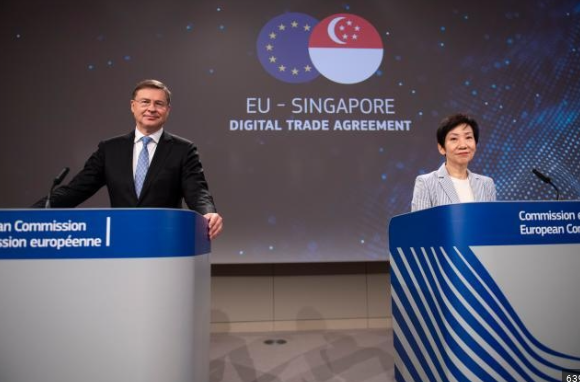First-of-its-kind accord between EU and ASEAN set to boost digital connectivity
Singapore and the European Union (EU) have concluded negotiations on the EU-Singapore Digital Trade Agreement (EUSDTA), the first such agreement between the EU and an ASEAN country. The agreement, announced on July 25, 2024, aims to foster data flows, digital trade, and enhanced digital connectivity between the two regions.
The EUSDTA builds on the EU-Singapore Digital Partnership signed earlier in February 2024. It is Singapore’s fifth digital economy agreement, following similar accords with countries such as Australia, South Korea, and the United Kingdom.
This new agreement is expected to provide clarity and legal certainty for businesses and consumers regarding the rules for digital trade between Singapore and the EU. It includes high-standard commitments that will ensure open, secure data flows, facilitate seamless digital trade, and establish trusted digital systems.
Minister-in-charge of Trade Relations Grace Fu emphasized the shared commitment between Singapore and the EU to create a stable digital trade environment, enabling businesses to unlock new opportunities while ensuring digital inclusion, especially for small and medium enterprises.
One of the key features of the EUSDTA is the legally binding prohibition of data localization requirements, alongside strong safeguards for personal data protection. Additionally, the agreement aims to prevent forced transfers of technology, intellectual property abuses, and protect consumers from unfair practices such as spam.
The EUSDTA expands on the digital trade principles outlined in the earlier EU-Singapore Digital Partnership and sets the stage for deeper cooperation in the digital economy. This agreement is poised to help businesses and governments navigate the rapidly changing regulatory landscape of global digital trade.
The EU-Singapore economic relationship remains strong, with the EU being Singapore’s fourth-largest goods trading partner and second-largest services trading partner. In 2023, bilateral trade in goods between the two regions grew to over S$105 billion, while trade in services surpassed S$98 billion.








